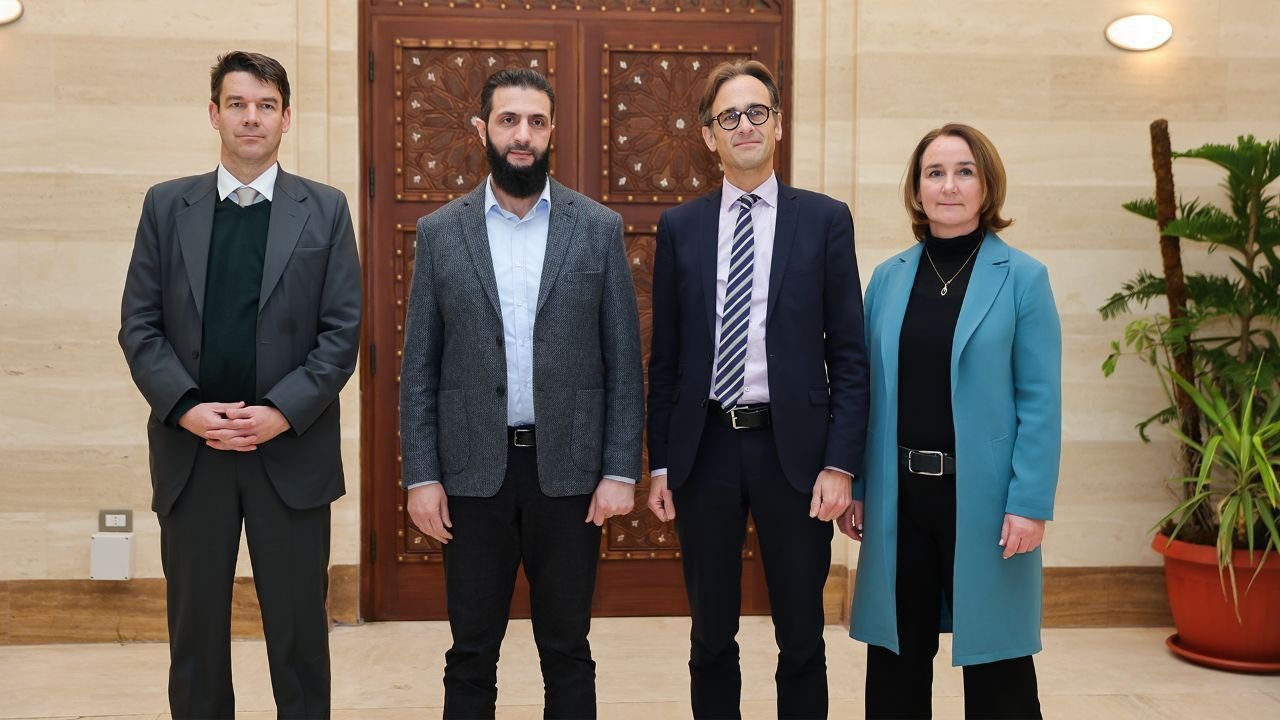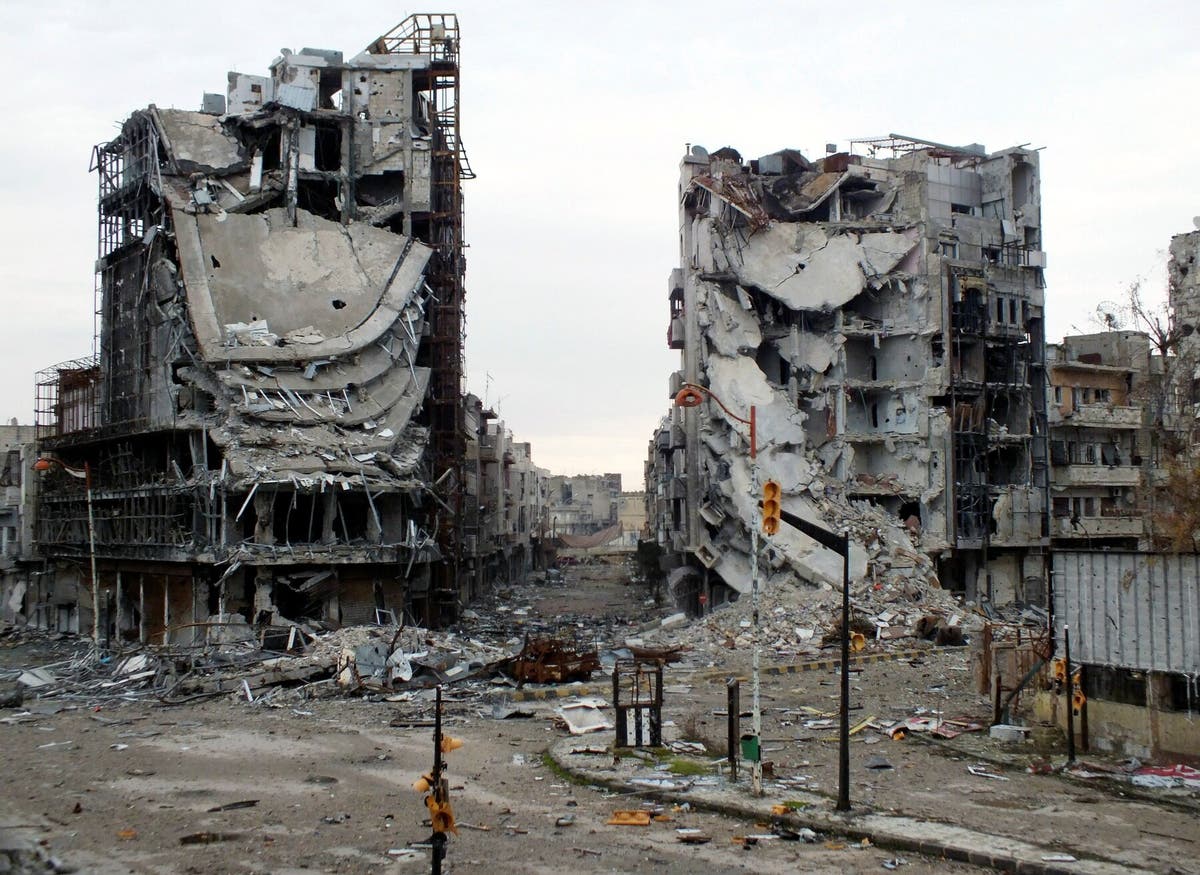Cautious Steps and Complex Challenges: How Europe Seeks to Regain Its Influence in Syria

“The EU seeks assurances from Syria's new leaders in exchange for dropping sanctions.”
After being surprised by the rapid fall of the Syrian regime, European governments find themselves in a state of anticipation regarding the position that should be adopted towards the armed opposition factions that seized power, with a mixture of concern and optimism.
Since December 8, these countries have unanimously welcomed the fall of Bashar al-Assad's regime, after it ruled the country with an iron fist for 54 years, 14 of which witnessed the killing of hundreds of thousands of Syrians.
However, the approach of Hayat Tahrir al-Sham (HTS), and its classification as a terrorist organization by several Western countries, still raises concerns.
A European diplomatic source reported that some countries have begun establishing indirect channels of communication with Syria’s transitional government, but he added that it is too early to abandon caution.
Several messages have been recently sent by European officials regarding Syria after the Assad regime, including the need for Russia and Iran to have no place in Syria’s future.
European capitals are seeking to renew relations with Syria, but they are still questioning the approach of the new authorities towards minorities and women.
Political Delegations
Recently, the pace of visits by European delegations to Damascus has accelerated, in an attempt to explore a way to communicate with the new authorities, whose rise to power has raised caution in international circles.
It is noteworthy that the commander of the military operations department in Syria, Ahmed al-Sharaa, had gradually gained legitimacy through meetings with international media outlets during the past few days.
Following that, European countries, led by Turkiye, Britain, Germany and France, were keen to send political delegations representing these countries to sit with Mr. al-Sharaa to agree on the details of the next stage in the new Syria, and to learn about his visions for the future.
On December 14, the Turkish embassy in Damascus was reopened, after 12 years of closure as the first foreign embassy to open its doors in Syria after the fall of the Assad regime.
Turkiye also appointed Burhan Koroglu as interim charge d'affaires of its embassy in Damascus, pending the appointment of a new ambassador.
This came only 48 hours after the visit of the first Turkish official, and also a foreigner, to the Syrian capital, Damascus, namely the head of the Turkish intelligence agency, Ibrahim Kalin.
French Foreign Minister Jean-Noel Barrot said during a hearing in the French parliament on December 18 that Paris will host an international meeting on Syria in January 2025, considering that reconstruction aid and the lifting of international sanctions on Syria depend on clear political and security commitments by the new authorities.
On December 17, French envoy to Syria Jean-Francois Guillaume confirmed after arriving in Damascus with a diplomatic delegation that his country is ready to stand by the Syrians during the transitional period.
The delegation expressed its aspirations for a peaceful political transition in Syria that represents all segments of society, respects the rights of the people, protects all civilians, including ethnic and religious minorities, and respects state institutions and the country's territorial integrity.
In addition to the French delegation, Syria’s new leaders received a German delegation headed by the country's commissioner for the Middle East, Tobias Tunkel.
According to the German Foreign Ministry, the delegation spoke with Mr. al-Sharaa and representatives of civil society and religious organizations.
The German Foreign Ministry considered that HTS should be judged by its actions, stressing that it has acted with caution so far.
It explained that any cooperation with HTS assumes the protection of ethnic and religious minorities, and respect for women's rights.
The Head of the Middle East and North Africa Department at the British Foreign Office, Stephen Hickey, and the British envoy to Syria, Ann Snow, also held a meeting with Mr. al-Sharaa in Damascus on December 17.
Last weekend, Britain announced a $63 million aid package to help Syrians.
On her part, Italian Prime Minister Giorgia Meloni expressed Rome's readiness to communicate and talk with the new Syrian authorities but urged maximum caution.
It is worth noting that Italy was at the forefront of European countries that re-normalized their relations with the ousted regime, and led a campaign in Europe to open up to the Assad regime under the pretext of facilitating the return of Syrian refugees.

European Conditions
In a related context, European Commission Vice President Kaja Kallas revealed that the EU will reopen its representative office in Syria.
She stressed, during the special session on Syria held by the European Parliament's General Assembly on December 17, that the EU must be prepared to ease sanctions on Syria if the new leadership takes positive and effective steps.
Kallas explained that the EU had cautiously begun a dialogue with the new authority in Syria and civil society, and stressed that there could be no vacuum in Syria and that the EU must have a presence.
She stressed that the EU would closely monitor HTS, and that the group would be judged on its actions, not its words.
It is worth noting that the sanctions imposed by the EU on the former Syrian regime are still ongoing, and represent one of the most prominent challenges facing the new authorities, especially reconstruction efforts.
Initial estimates indicate that the costs of reconstruction of Syria could be worth more than $1 trillion, a huge sum reflecting the massive destruction caused by the war since 2011.
The European sanctions include a ban on arms exports and oil imports, a freeze on the assets of the Syrian central bank in the EU, and a ban on investment in the Syrian oil industry.
In addition to the EU’s strict sanctions on Syria, HTS, which is on the EU’s terror list, has also been under sanctions for years, making matters somewhat complicated.
In an effort to define the terms for lifting their sanctions, EU countries have drawn up a set of Criteria for providing aid to Syria in the event of stability, the most important of which are protecting minorities, overseeing an inclusive transition and shunning extremism.
The European bloc also imposed a key condition, which is to limit Russian influence in Syria, including the removal of the two military bases in the country.
Spanish Foreign Minister Jose Manuel Albares, said Syria’s new leaders must understand that the EU has some red lines which should be respected before support comes.
Austrian Foreign Minister Alexander Schallenberg said Europe’s support for Syria’s new leaders should not be a blank check in advance.
Dutch Foreign Minister Caspar Veldkamp also told reporters that regarding the Russian military bases in Syria, we want the Russians out.

On the other hand, Polish Foreign Minister Radoslaw Sikorski confirmed that there is a clear desire from EU countries are working to create a suitable environment for the return of Syrian refugees, but this requires basic conditions such as the rule of law, the existence of an inclusive government, and guaranteeing the rights of minorities.
He believed that Syria needed a radical change in its political approach, including severing ties with Iran and Russia, so the EU could support the safe return of refugees.
However, the European Commission announced that it believes that the current conditions are still not ripe for the return of refugees to their countries, despite the EU’s readiness to support voluntary return.
Positions on the return of Syrian refugees to their homeland are a point of contention among European countries, amid concerns about political and security stability there.
Germany is currently one of the main opponents of this return, due to its reliance on Syrian labor, especially in the health sector, which puts it in a different position from Poland, Italy and other countries dominated by the far right.
Cautious Optimism
The above are the most prominent demands that the Europeans raise when talking about Syria, but the question raised is about the cards that the Europeans have to pressure the new leadership.
The new authorities need everything, not just humanitarian aid. Syria’s greatest need is reconstruction, which will not be achieved without Arab, European and international contributions.
Hence, French sources believe that the new regime has no choice, if it wants to move away from the model Afghan or Libyan, unless it listens to what Europe wants and cooperates and quickly provides evidence of the consistency between its promises and actions.
Julien Barnes-Dacey, a senior policy fellow with the European Council on Foreign Relations, stressed that a stable Syria is in the Europeans' interest, speaking of a possible new wave of migration if Syria descends into chaos.

In turn, Syrian journalist Ahmed Gharib explained in a statement to Al-Estiklal that “despite the attempts of European countries to open channels of communication with Syria’s transitional government, by sending diplomatic delegations, they still confirm their position classifying HTS on the terrorist list.”
He also pointed out that “the American position on the new Syrian regime is still ambiguous, as Washington's position is important and is a beacon for the EU to move accordingly.”
Mr. Gharib explained that Western countries had previously confirmed that HTS will remain under sanctions, if Syria doesn’t move toward real inclusivity, noting that the current transitional government is not harmonic according to those conditions.











